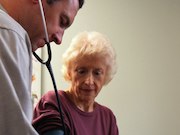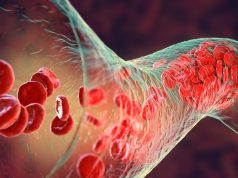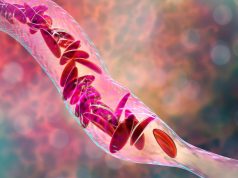Possible increased risk of pulmonary embolism, peripheral artery disease less clear
TUESDAY, Feb. 27, 2018 (HealthDay News) — Patients with varicose veins have a significantly increased risk of incident deep vein thrombosis (DVT), and may have increased risks of pulmonary embolism (PE), and peripheral artery disease (PAD), according to a study published in the Feb. 27 issue of the Journal of the American Medical Association.
Shyue-Luen Chang, M.D., from the Chang Gung Memorial Hospital in Taoyuan, Taiwan, and colleagues enrolled 212,984 patients with varicose veins (aged 20 years and older) from Jan. 1, 2001, to Dec. 31, 2013. Patients were matched by propensity score to a control group of 212,984 patients without varicose veins.
The researchers found that the median follow-up duration for patients and controls varied from 7.3 to 7.8 years. Compared with the control group, the varicose vein group had increased incidence rates for DVT (absolute risk difference [ARD], 5.32), PE (ARD, 0.20), and PAD (ARD, 4.51). Compared with the control group, the hazard ratios for the varicose veins group were 5.30, 1.73, and 1.72, respectively, for DVT, PE, and PAD.
“Among adults diagnosed with varicose veins, there was a significantly increased risk of incident DVT; the findings for PE and PAD are less clear due to the potential for confounding,” the authors write. “Whether the association between varicose veins and DVT is causal or represents a common set of risk factors requires further research.”
Copyright © 2018 HealthDay. All rights reserved.








